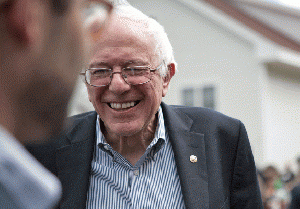When FDR took over the White House in 1933, America was in dire straits. Two straight decades of Republican rule culminating in the Great Depression had decimated what remained of the middle-class.
So FDR went ahead and oversaw what remains, with the probable exception of the Civil War, the most radical transformation of American democracy in our history: the New Deal.
He signed the Wagner Act, giving workers the right to collectively bargain with their bosses.
He created the Works Progress Administration, or WPA, and the Civilian Conservation Corps, or CCC, which provided jobs for millions of unemployed Americans and turned the government into the employer of last resort.
He created the Securities and Exchange Commission and signed the Glass-Steagall Act, which clamped down on Wall Street gambling and made the banking industry boring, safe, and sustainable.
He also signed the Social Security Act which created the backbone of the modern day welfare state and, for the first time, made it possible for all Americans to retire with a pension.
But the New Deal was bigger than just a collection of acts and agencies. What made it so important in the long run was that it created the preconditions for an American middle-class.
You, middle-classes are not "natural" in a deregulated capitalist economy. They have to be created, created with regulations, unions, and smart trade policy.
In its natural state, capitalism is a lot like feudalism. There is a small sliver of superrich who rule over everyone else, followed by a slightly larger class of middle-managers and professionals. The vast majority of people, though, fall into the category of working poor, and they're basically serfs who have no power whatsoever.
This is what American society looked like before FDR became president. But after FDR's time in office, American society was totally different.
Republicans and Democrats agreed to follow the basic policies set forth in the New Deal, and even expanded on them, as the Republican Party bragged about doing in its 1956 platform. They also supported sensible trade policies that prevented jobs from being shipped overseas in the name of corporate so-called "free trade."
For decades this "New Deal consensus," as historians call it, reigned supreme. And not coincidentally, so too did the middle class. From the end of World War II until the 1980s, American society was remarkably equal.
And then Reagan became president, and he and his Republican allies began undoing the New Deal piece by piece.
They gutted union rights, slashed the social safety net, and deregulated big business. Bill Clinton got in on the act too when he repealed the Glass-Steagall Act and allowed Wall Street to mix with commercial banking, a decision that led directly to the crash of 2008.
As a result, America has been going backwards ever since 1981. Our country now looks more like it did in 1933 than it did in 1973"






